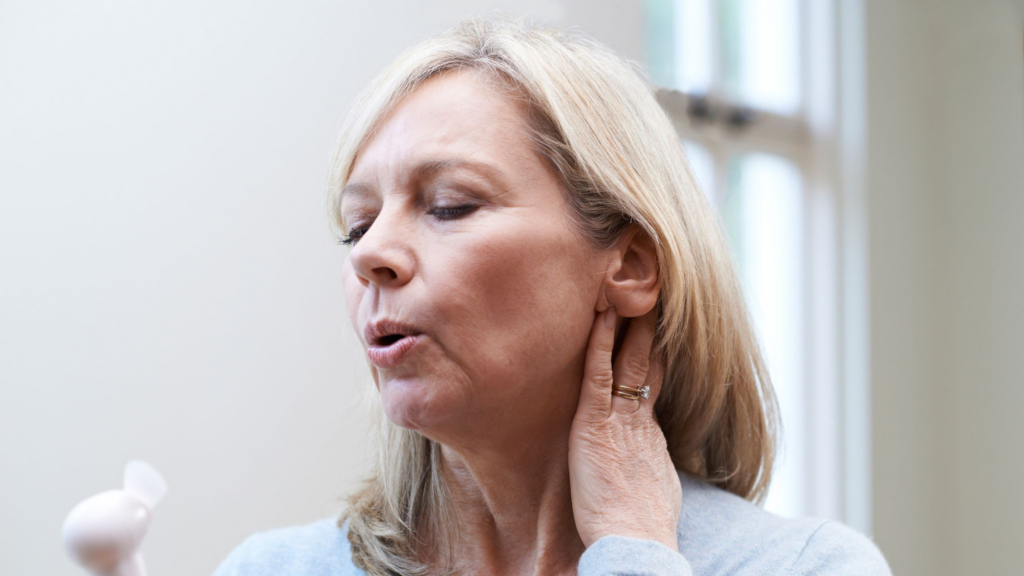Menorescue Reviews : Main Symptoms and How to Manage Them

Menorescue Reviews : Main Symptoms and How to Manage Them
Menopause is a natural phase in every woman’s life, but it can bring a series of challenges. Symptoms vary from person to person, but some are more common and can significantly impact quality of life. Let’s explore these symptoms and the best ways to manage them.
Most Common Menopause Symptoms
1. Hot Flashes and Night Sweats
Hot flashes are episodes of intense heat accompanied by sweating and flushing. When they occur at night, they can disrupt sleep and cause fatigue.
2. Sleep Disturbances
Difficulty sleeping is common and may be caused by night sweats or other discomforts. Lack of sleep can affect mood, energy, and mental health.
3. Mood Swings and Emotional Issues
Hormonal fluctuations can lead to irritability, anxiety, and even depression. Many women also report memory lapses and difficulty concentrating, known as “brain fog.”
4. Vaginal Dryness and Sexual Discomfort
The reduction in estrogen can cause thinning and dryness of vaginal tissues, resulting in pain or discomfort during intercourse, as well as decreased libido.
5. Weight Gain and Body Composition Changes
During menopause, many women notice an increase in abdominal fat, which can be frustrating and raise the risk of metabolic diseases.
6. Bone Density Loss and Osteoporosis
Estrogen plays a crucial role in maintaining bone health. Its decline can accelerate bone loss, increasing the risk of osteoporosis and fractures.
7. Increased Cardiovascular Risk
After menopause, the risk of heart disease increases due to changes in cholesterol, blood pressure, and blood vessel function.
8. Urinary Symptoms
Changes in pelvic floor muscles and urinary tract tissues can cause increased urinary frequency, urgency, or incontinence.
How to Manage Menopause Symptoms
Although menopause can be challenging, there are several strategies to alleviate symptoms and maintain a good quality of life.
1. Lifestyle Adjustments
- Regular exercise: Helps maintain weight, strengthen bones, and improve mood.
- Balanced diet: Prioritize foods rich in calcium, vitamin D, and omega-3 fatty acids.
- Stress management: Practices like yoga, mindfulness, and deep breathing can help reduce emotional symptoms.
2. Medical Treatments
- Hormone replacement therapy (HRT): Can relieve hot flashes, mood swings, and protect bone health, but should be evaluated individually.
- Alternative medications: Some antidepressants and herbal remedies, such as black cohosh, can help alleviate symptoms.
3. Complementary Therapies
Cognitive behavioral therapy (CBT): Can be effective for emotional symptoms and insomnia.
Vaginal moisturizers and lubricants: Help reduce vaginal dryness and discomfort.
Conclusion
Menopause is a challenging phase, but with the right information and adjustments, it is possible to go through it with health and well-being. Consulting a healthcare professional is essential to find the best approach for each case.
If you are going through this phase or know someone who is, share this content to help more women navigate menopause with quality of life!
CLICK HERE TO GET YOUR DISCOUNT

Dr. Sarah Miller is widely recognized as an influential leader in the healthcare field, with a career marked by excellence, innovation, and dedication to improving human well-being. Combining exceptional academic knowledge, clinical experience, and a deep commitment to research, she has become a reference in her specialty.







